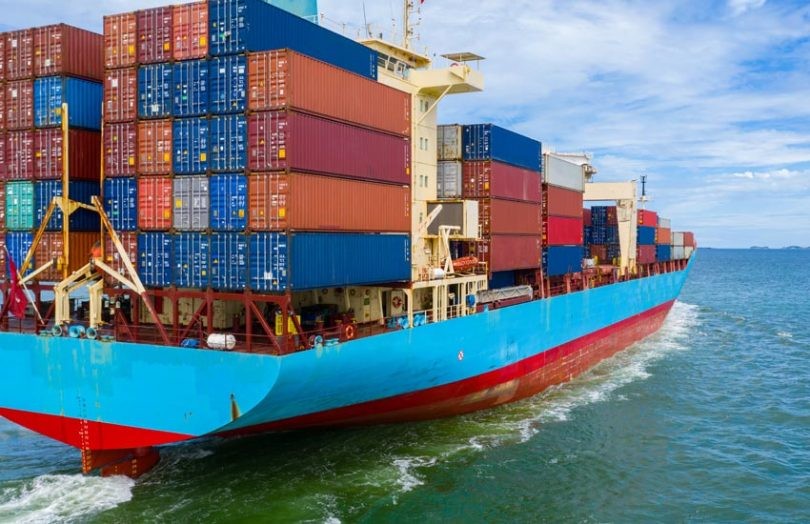Blog Detail
BNY Mellon Employs Blockchain To Digitize Working Capital In Global Trade Finance

According to the latest reports on Sept. 6, 2021, BNY Mellon has joined consortium endeavors to bring blockchain technology into global trade finance and digitizing the procedure of facilitating working capital to both suppliers and purchasers across the world. Digital trade finance is the need of the hour for traders to survive in the post-pandemic world.
The BNY Mellon’s association with Marco Polo Network will enable the company to bring more liquidity into the global supply chain to avoid supply chain management risks effectively as well as help in offering supply chain finance solutions including payables financing and receivables discounting to suppliers who are engaged in the shipment of goods and services to their importers globally.
The Marco Polo Network is a consortium of around 45 banks offering an open software platform for trade, payments, and working capital financing to banks, corporates, and other market members. The cloud-based blockchain-inspired network enables uninterrupted, safe, and quick exchange of trade data assets in a multi-channel environment.
Leveraging the Marco Polo technology platform will enable BNY Mellon to facilitate funding to the suppliers and have real-time access to trade finance instruments and their statuses, such as Purchase orders and invoices.
Real-time visibility will fundamentally accelerate the speed of trade finance work procedures. When both parties to the trade provide their consent regarding the authenticity of the transaction on the blockchain platform, the trade is verified in real-time. It means that the information in trade documents is correct, verified, matched, and affirmed by both parties instantly, allowing the quicker delivery of working capital to fund the trade transactions by liquidity providers like BNY Mellon.
Digitization conveys especially noticeable efficiencies for huge buyers such as big-box retailers that might issue thousands of purchase orders each day and earlier had to be dependent on an antiquated paper and email-based work procedure to ensure safe trade financing.
According to Joon Kim, Global Head of Trade Finance Product & Portfolio Management in BNY Mellon Treasury Services, “Seeing the major challenges in trade finance, blockchain has the power to transform the trade finance industry by replacing multiple systems with a single shared record with the help of one distributed ledger. As all the parties involved in trade finance will get instant updates of each progress in the trade lifecycle, this allows us to facilitate working capital more quickly and safely to customers.”
The incorporation of blockchain technology will limit the fraudulent activities of using the same trade instruments to secure working capital from multiple liquidity providers. This limited credit risk boosts customers’ confidence and reliability and may bring a better rate to get working capital.
Digitization and the multi-channel Marco Polo network also provide opportunities for the development of a liquid secondary market in trade finance where a trading instrument that is liable to funding can be offered to an alternative liquidity provider consortium participant, releasing greater capacity for additional working capital to be extended.
At last, the blockchain empowers counterparties to screen whether trades match with their environmental, social, and governance (ESG) principles more consistently. The Marco Polo network facilitates users with an autonomous view into an enormous number of corporations and incorporates an ESG score to each organization that can allow participants to decide whether a firm fulfills their environmental, social, and governance values.
This incorporates the capacity to follow the work conditions for workers engaged in the supply chain, figure out whether raw materials were achieved from restricted areas such as conflict zones, and screen the carbon emission of vehicles being utilized to ship orders.
Since the Marco Polo Network works as an open platform that enables connections through APIs, the network can bring a wide range of Enterprise Resource Planning (ERP) systems that suppliers and buyers across the world may be using as a part of their trade finance procedures.
Kim adds, “We are especially satisfied to be a member of the Marco Polo Network that will allow clients to communicate with us and access funding in an open architecture viable with most major ERP frameworks.”
Blockchain-based trade finance is the latest advancement in BNY Mellon’s drive to assist the paper-to-digital journey and execute payments to avoid global trade payment risks and trade more effectively for customers. Last month IBS Intelligence had announced that Verizon had turned into the primary customer to carry out Real-Time E-Bills and Payments to clients, making it the first US corporation to expand this innovation into the retail customer space.







